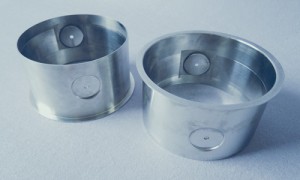How to calculate CNC machining costs?
Views: 313 Update date: Aug 27,2024
Calculating CNC machining costs involves several factors that contribute to the overall expense. Here’s a step-by-step guide on how to determine these costs:
Machine Time: The time taken by the CNC machine to complete the job, typically measured in hours.
Labor Costs: The cost of the operator's time to set up and monitor the machine.
Overhead Costs: General costs associated with running the facility, including utilities, rent, and maintenance.
Tooling Costs: Costs associated with tools and fixtures required for the machining process.
Setup Time: Time required to set up the machine for the specific job.
Calculate the total weight or volume of material needed for the project.
Material Cost = Price per Unit × Quantity Used
Convert machine time into cost using the hourly rate for the CNC machine.
Add any additional time for setup and monitoring.
Labor Cost = Labor Hourly Rate × Total Labor Hours
This might vary depending on the business model and location.
Overhead Cost = Total of Material, Machine, and Labor Costs × Overhead Percentage
This can be a one-time cost or amortized over multiple jobs.
Total CNC Machining Cost = Material Cost + Machine Cost + Labor Cost + Overhead Cost + Tooling Costs
Consider variations across different projects or production runs.
Machine Cost: $150 (3 hours at $50/hour)
Labor Cost: $100 (2 hours at $50/hour)
Overhead Cost: $45 (based on 15% of total costs before overhead)
Tooling Costs: $25
Total CNC Machining Cost = $200 + $150 + $100 + $45 + $25 = $520
By following these steps, you can effectively calculate the CNC machining costs for your projects.
Prev: How to make money with small CNC machine?
Next: How much does CNC machining cost per hour?
1. Factors Involved
Material Costs: The type and quantity of material required for the job.Machine Time: The time taken by the CNC machine to complete the job, typically measured in hours.
Labor Costs: The cost of the operator's time to set up and monitor the machine.
Overhead Costs: General costs associated with running the facility, including utilities, rent, and maintenance.
Tooling Costs: Costs associated with tools and fixtures required for the machining process.
Setup Time: Time required to set up the machine for the specific job.
2. Calculate the Material Cost
Determine the price per unit of the material (e.g., per pound or per piece).Calculate the total weight or volume of material needed for the project.
Material Cost = Price per Unit × Quantity Used
3. Estimate Machine Time
Use the CNC program to estimate machining time based on part complexity and required operations.Convert machine time into cost using the hourly rate for the CNC machine.
Machine Cost = Machine Hourly Rate × Machining Time (hours)

4. Calculate Labor Costs
Determine the labor rate (cost per hour) for the operator.Add any additional time for setup and monitoring.
Labor Cost = Labor Hourly Rate × Total Labor Hours
5. Factor in Overhead Costs
Estimate a percentage of the total costs to account for overhead (usually between 10-30%).This might vary depending on the business model and location.
Overhead Cost = Total of Material, Machine, and Labor Costs × Overhead Percentage
6. Add Tooling Costs
Include the costs for any special tools or fixtures required.This can be a one-time cost or amortized over multiple jobs.
7. Calculate Total Cost
Combine all calculated costs:Total CNC Machining Cost = Material Cost + Machine Cost + Labor Cost + Overhead Cost + Tooling Costs
8. Review and Adjust
Review the estimates for accuracy and adjust rates or assumptions as necessary.Consider variations across different projects or production runs.
Example Calculation
Material Cost: $200 (for aluminum)Machine Cost: $150 (3 hours at $50/hour)
Labor Cost: $100 (2 hours at $50/hour)
Overhead Cost: $45 (based on 15% of total costs before overhead)
Tooling Costs: $25
Total CNC Machining Cost = $200 + $150 + $100 + $45 + $25 = $520
By following these steps, you can effectively calculate the CNC machining costs for your projects.

